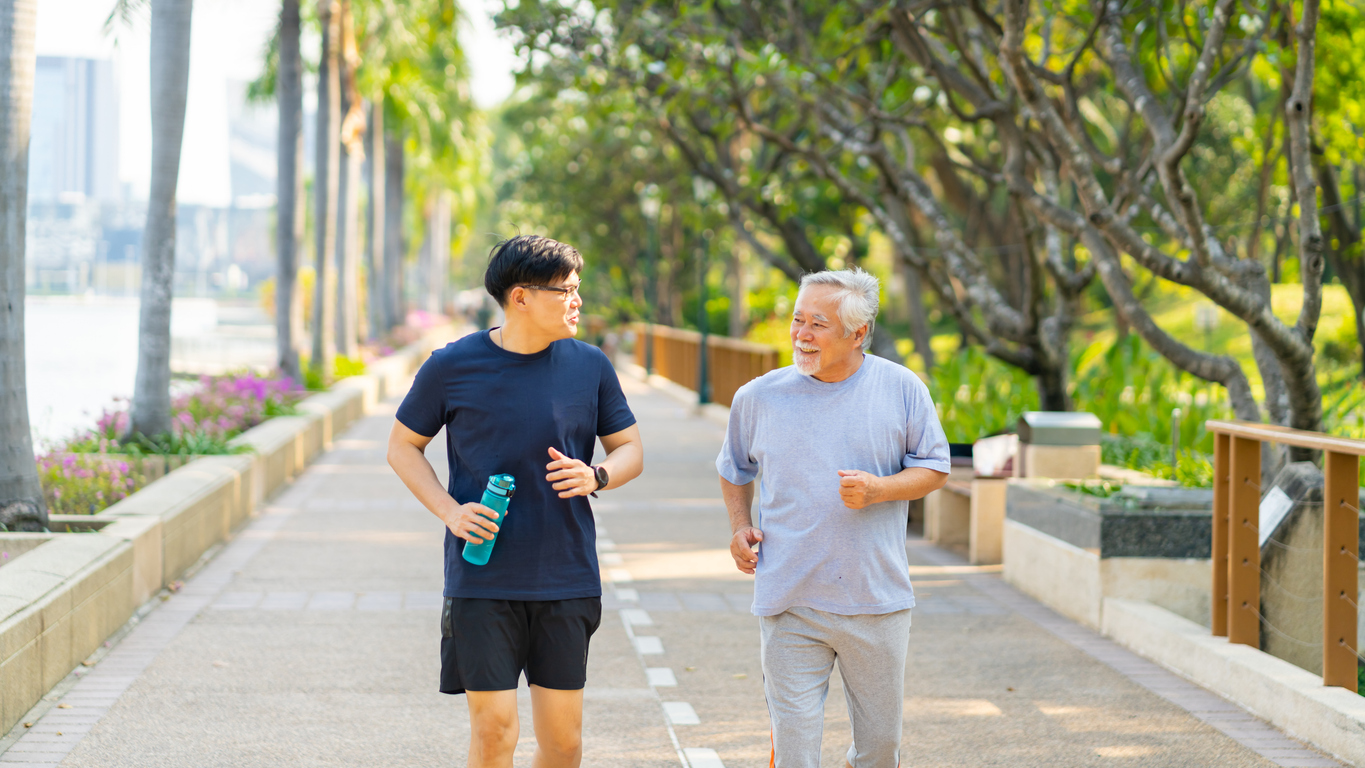Reducing falls for older adults includes both proactive prevention and mindfulness. While falling may be a common and even essential part of learning to walk, it can become increasingly dangerous as the years progress. However, there are ways to help reduce the potential for falling in advance, as well as when balance may become more unsteady or healing starts to take longer. People often have questions related to the following topics when thinking about avoiding falls as older adults:
- What to do at any age to avoid more frequent falling in the future
- How to support older family members in fall prevention
- When to worry about fall frequency
Keep reading to learn how to reduce falls in the elderly years and how to support older adults in fall prevention.
How to Reduce Falls in the Elderly Years at Any Age
Throughout one’s life, it’s important to be aware of and address physical changes that arise for many reasons, including reducing falls in the elderly years. In addition to regular check-ins with your healthcare team, exercising regularly (and in the right shoes!), healthy eating, and proper hydration are just a few of the things that people can do regularly to help reduce falls during later years. Prioritizing exercises that target building strength and supporting balance in particular becomes even more important with each birthday that passes! According to Johns Hopkins Medicine, these types of exercises are both essential for helping reduce fall risk and as part of recovery after a fall. Consider trying a few of these balance exercises on your own or with an older friend or family member. If you’d like more guidance regarding strength building and other types of exercise, finding a senior workout program near you may be a better fit than trying to develop a routine independently. It’s generally recommended to talk to your doctor prior to starting any new exercise routine or program, especially if you are recovering from a recent fall or have other health considerations.
Avoiding Falls in the Elderly Years: The Importance of Support From Friends and Family
Whether they live in the same town or far away from the older adults in their lives, people may wonder how best to support these individuals in reducing the likelihood of falls. Even if you are not there when physical assistance may be most needed, encouragement and observation can be equally important. Here are 4 ways to support fall prevention:
- Be aware of and ask questions about the health and healthcare appointments of older adults. Monitoring the health of a loved one through both what they share and don’t share often provides insight into causes for joy and potential concern.
- Develop a fall prevention plan. The Falls Prevention Conversation Guide available from the National Council on Aging may be a helpful tool for all involved in this process.
- Include exercising as part of the conversation and perhaps even do this activity together. Living communities for older adults like Arbors of Hop Brook often offer wellness programming on-site. Consider establishing an exercise time with a friend or family member each week during which to work out together virtually or in person.
- Share your own experiences with slip or trip hazards, complete or almost falls, and other safety concerns around the home. For example, if you always trip over the same doormat at your grandma’s house or the poorly lit stairwell in your own home has often made you stumble, talk about changes that help reduce falls now and in the future.
When to Worry about Falls
Sometimes, people may dismiss a fall if it doesn’t result in any clear injury or just consider it an unfortunate accident. Therefore, it’s important to identify the frequency of not just a complete fall or near fall, but also other signs of mobility and stability concerns like increased unsteadiness or dependence on supports to move around. Recognizing these signs is not only essential for reducing falls in the elderly years but also for awareness of other health concerns that may be emerging, such as vision or hearing changes, side effects of medications or other health conditions.
At Arbors of Hop Brook, we are here to support our residents with all of their health needs, including avoiding falls during their elderly years. In addition to our various exercise programs and amenities like health monitoring, personal care and emergency services, our apartment floor plans are designed with the concerns of older adults in mind. With features like walk-in showers/tubs and high-rise toilets and grab bars, our floor plans have your safety in mind, as well as the features that suit your lifestyle like Wi-Fi and multiple apartment layouts. Contact our team today with any questions or to schedule a tour!


